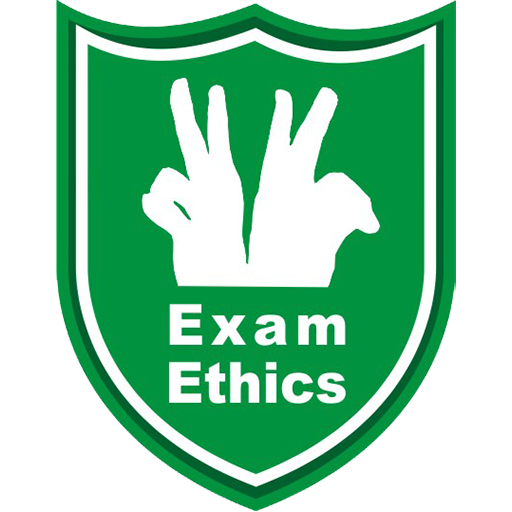This news article was culled from The Guardian.ng
Fifty-six years after independence, our education sector is lacklustre on all input, process, output and outcome indicators. Literacy rate has slumped to a pitiful 65%. Basic education net enrolment rate is less than 70%, curriculum delivery is weak owing to a combination of poor teacher quality and inclement teaching-learning resources. On the output front, graduate quality has been depreciating and research from the ivory towers is found to be increasingly irrelevant to national development. Within this sea of despondency are islands of success exemplified by greater ICT penetration into the school system and products from the Nigerian school system winning academic laurels in Europe, North America and elsewhere in the world. However, the balance sheet shows the Nigerian educational ship listing to one side like the leaning tower of Pisa and needs urgent propping to avert sinking.
The current economic recession makes the effort to put the sector back to shape a slippery pole to climb, demanding creativity and sacrifice on the part of all stakeholders. We should recognise that there are at least four forces which are pulling the education sector apart. Political insincerity and hypocrisy is one. Politicians are apt to call people out for education summits as soon as elected and tardy in implementing the repetitive recommendations and roadmaps arising from such summits. Until the day dawns when our leaders at the local government, state and federal levels muster the political will sufficient to implement these recommendations, we will forever and a day keep regressing in educational attainments and by the centenary anniversary of our independence in 2060, will record a step forward and ten steps backwards in education.
Second is the force of demographics and our inability to balance the quantity-quality equation. This is evidenced in the deluge of students angling to enter the basic and higher education systems and the inability to resource the system sufficiently to accommodate and deliver quality education to such prospective entrants. In 2016, the basic education system is agonising from about 10 million children being out of school and the higher education system unable to absorb more than 45% of eligible candidates. This accounts for Nigeria having one of the lowest primary net enrolment rates and in the bottom 20% of countries in Africa when ranked according to higher education participation rate. The third force is socio-cultural where religion and other socio-cultural factors are disingenuously applied to exclude children from formal education. The fourth force is corruption which is freeing insufficient funds for the education sector. So what must we do to deliver quality education in these harsh economic times in the face of the four forces? I offer five suggestions.
In the coming months, before year’s end, we must build the capacity of all managers of the education system to run the system and effectively deliver the curriculum on a lean budget. Only yesterday, the Honourable Minister of Finance warned that we are unsure of when the recession will end. On account of this caution, we need to prepare for the long haul. By my assessment, we can deliver quality education with 70% of funds we had in the past since about 30% is eaten up by corruption and wastage. Intensive workshops should be conducted for senior officials of the federal ministry of education, state commissioners for education, vice-chancellors, rectors, provosts, principals of secondary schools and head teachers of primary schools on how to run schools in a recessed economy. Many are still stuck in the rut of the profligate days and will want to corner allocation to their institutions and agencies for non-educationally productive use such as overseas travels and expenditures that will not add value to the academic standing of their institutions. The workshops should address this concern and participants monitored for compliance. Incentives by way of state or national awards should be given to such educational managers who are able to run their schools effectively and efficiently on lean budget.
The second suggestion is to leverage more on technology to deliver the curriculum. This will significantly reduce cost and has the huge potential of enhancing meaningful learning. Our studies have shown that technology can bring down the cost of teaching, learning and research by a factor of two and after the initial investment in infrastructure, by a factor of four. Since many teachers have low ICT literacy, it becomes a matter of urgency that teachers at all levels be worked through a regime of training over the next six months to elevate their knowledge and skills in the use of ICT to deliver quality education. Steps should also be taken to acquire the basic ICT infrastructures in our schools and ensure their periodic maintenance.
The third is to establish what can be called “Recovered Looted Funds for the Revitalisation of the Education Sector” project. This project will assign some chunk of the looted funds now being recovered to complement regular budget in addressing some of the key challenges in the sector. Chief among these will be to improve infrastructure (especially classrooms, laboratories, hostels and general ambience of our schools), train teachers and pay outstanding salaries of teachers. In the march to the recovery of looted funds, we should look beyond the federal looters and add those at the state and local government levels.
The fourth is to improve discipline in the system. The system is currently suffering from financial, moral and ethical indiscipline. Discipline is one of the propellers of effectiveness and efficiency in a depressed economy and the educational system should be at the vanguard of promoting discipline. The “Change Begins with Me” movement should gain greater traction in our schools. Academic corruption is rife system wide in such areas as admission, examination administration, teaching, research and publications. This is the time, more than ever before that NUC, NBTE and NCCE should work with relevant stakeholders such as ICPC (especially through the ICPC Academy) to stamp out or drastically reduce academic corruption in our schools.
The fifth is to tighten the quality assurance operations in the education sector. In the face of increasing numbers seeking placement in our schools and the severe limitation of facilities, quality can only be sustained if the regulators such as NUC, NBTE, NCCE and the federal and state inspectorate services sharpen their quality assurance teeth and fail to be corrupted or compromised in the implementation process.









